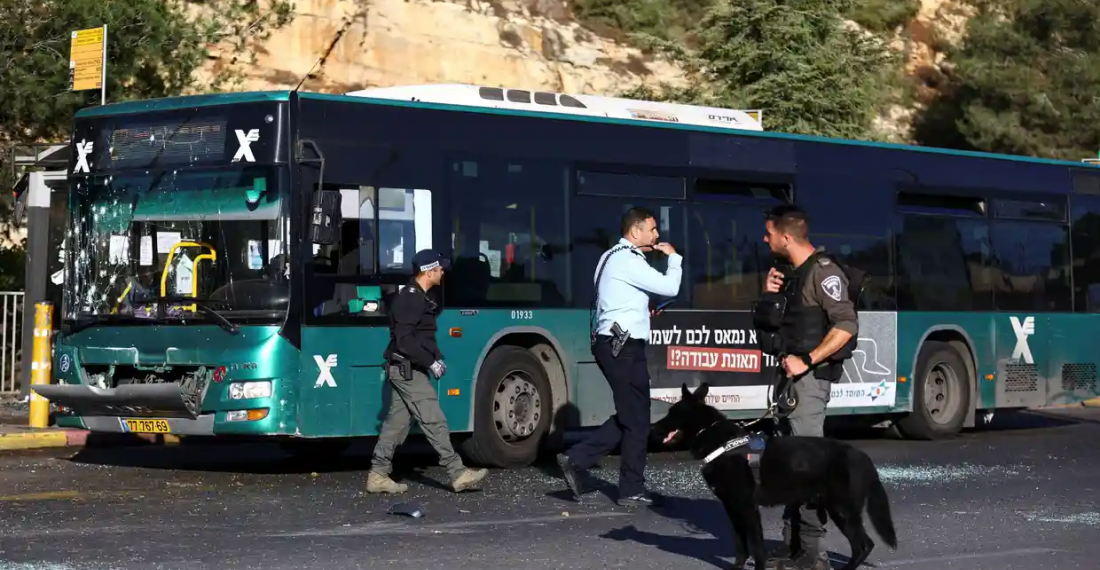At least one person has been killed and approximately 15 have been wounded from explosions at a bus stop and a traffic junction in Jerusalem on Wednesday (23 November). Israeli officials have labelled the explosions as an attack with terroristic intent amidst high tensions between Israel and Palestine.
Initial findings have shown that explosive devices were placed at two different locations, where the explosions occurred during rush hour, and necessitated a partial shutdown of the main highway leading in and out of Jerusalem. Eyewitness reports have described the explosions as “crazy”, and that damage was widespread despite the low number of casualties.
While relations between Israel and Palestine have been historically tense, bombing attacks by Palestinians have been rare. There have, however, been a wide range of stabbings, vehicle ramming attacks, and shootings. 2022 has so far been the deadliest year in the West Bank and East Jerusalem since 2006, where over 130 Palestinians have been killed during clashes with Israel. While Israel claims that the majority of the deceased have been militants, reports show that protesters urging a de-escalation of violence have also been among those killed.
Following the explosions, the Islamic militant group Hamas has praised the perpetrators while denying any responsibility, where spokesperson Abd Al-Latif Al-Qanua has said that “The [Israeli] occupation is reaping the price of its crimes and aggression against our people”.
Meanwhile, Israeli officials have claimed that the attack could act as an impetus for Israel to take a tougher stance on Palestinian attackers. Former Israeli President Benjamin Netanyahu is currently holding coalition talks that are expected to lead to what might become Israel’s most right-wing government yet. Netanyahu announced his condolences to victims through Twitter following the explosions, where he labelled the explosions as a terrorist attack. Other Israeli diplomats have condemned the attacks, where many are urging for a de-escalation of current tensions and violence.






